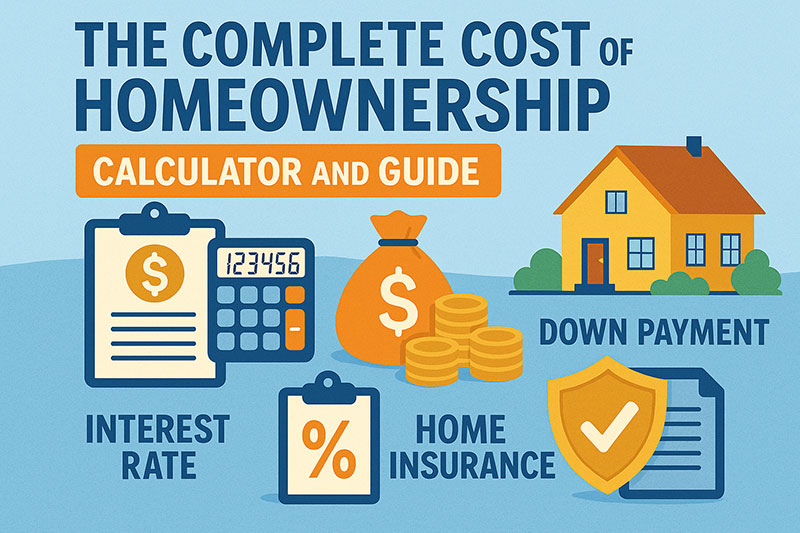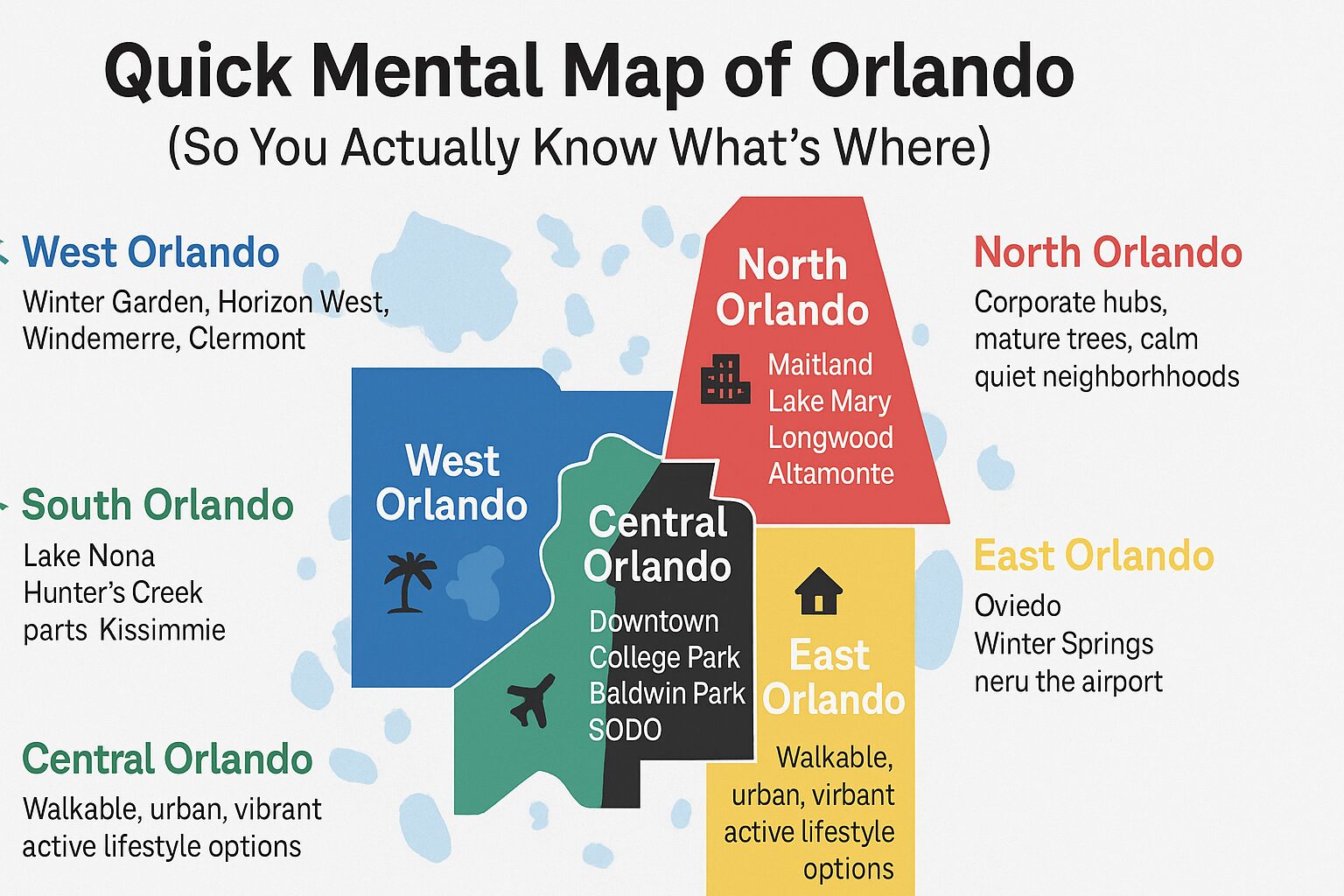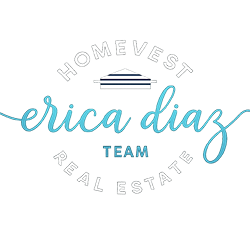Can you really afford to make the big move?
Calculating the true cost of moving can be a tricky business. Sure, you’ve probably budgeted for packing supplies, which are a must whether you’re moving yourself or hiring professional movers. Maybe you’ve researched truck rental companies or moving companies to get an estimate of those fees. But what about all the expenses leading up to moving day? What about the expenses you might incur just after the move?
As Central Florida real estate experts, the Erica Diaz Team has guided many happy clients through their move from one home to another. Today we’re sharing everything you need to know to calculate the true cost of moving, whether you own your own home or you’re renting. We want you to have the best experience possible on this exciting new adventure!
Keep in mind that pricing for everything listed below will range based on your location and where you’re moving to, the size of the home you’re moving from and to, any professionals you choose to hire, and even the time of year for your move. You’ll want to do plenty of research to put together a personalized budget based on your needs so you know how much to save. Read on to learn more!Homeowners and renters alike should expect to pay certain fees in the course of moving. Many of these expenses differ, but some overlap. Here is what everyone should be sure to budget for when estimating their true cost of moving:
- Packing supplies. If you choose to hire professional movers and/or professional packers, many of your traditional moving supplies may be included in the fee you pay. But it’s always a good idea to have at least the basics on hand. There may be personal items you prefer to pack and move yourself, for example. The main essentials you’ll need:
- Boxes
- Packing tape
- Bubble wrap
- Markers/Sharpies for labeling
- Moving blankets and mattress protectors
- Plastic storage containers
- Furniture dolly (if you’re moving furniture yourself)
- Utilities. Whether you’re renting or buying a home, you need to plan to pay for your utilities to be turned on at your new location. Don’t forget to schedule the termination of services at your current home, too, or you might get stuck with more moving costs you didn’t expect!
- Appliances. Not all new homes or apartments come with appliances. Refrigerators and washers and dryers are among the most commonly needed appliances when moving into a new home. Be prepared to add the cost of buying or renting those appliances to your overall cost of moving if you don’t already have them.
- Pest control. While this isn’t a “must” for all homeowners and renters, it’s something we advise you to add into your budget. We specialize in Central Florida real estate, and there are many critters and insects in this area. Best to be ready to keep them out of your new home!
On top of the moving costs mentioned above, homeowners incur additional expenses unique to them. Whether you’re selling a home, buying a home, or both, here’s a breakdown of the most common costs to include in your moving budget:
- Prepping your current home for sale. To sell your home for top dollar, you’ll want it in the best shape possible. We recommend you check out our posts on DIY improvements to sell your house faster and home prep tips for a fast sale to get an idea of what projects you should include on your moving to-do list. Be sure these projects make it into your moving budget!
- Home repairs/updates to your new home. Unless you’re buying a new custom home where you got to choose every paint color and fixture from top to bottom, you’re likely going to want to personalize some elements of your new home as you move in. Updating paint colors is especially common, and it’s generally recommended that you to do this before all of the furniture has already been moved in. That makes painting more of a moving expense than most people realize!
- Real estate related fees. Whether you’re working with a real estate agent because you want the peace of mind that comes with partnering with a professional or you are navigating your home sale/purchase on your own, there are fees homeowners should expect to pay when moving. These include:
- Real estate agent commissions
- Property taxes
- Homeowners insurance
- Optional home warranties
- Potential mortgage payoff fees
- Potential capital gains taxes
- Potential HOA fees
You renters didn’t think you escaped all those additional expenses, did you? While you might not have the same types of fees as homeowners, you’ve got quite a few expenses of your own to include when calculating your cost of moving. Some of these fees will be optional depending on where you’re renting, but it’s best to be thorough so you’re prepared.
Let’s hit the highlights:
- Prepping your current rental to get your security deposit back. One of the biggest hidden moving expenses is the loss of a security deposit that renters expect to get back. Do everything possible to leave your rental in great shape so you can recoup that deposit. Patch holes in the walls, steam carpeting and scrub tile grout, weed any flower beds you may have been responsible for maintaining, and otherwise clean up the space.
- Saving for first and last month’s rent on a new rental. Alternatively, you might save for a down payment on a new home.
- The security deposit on your new rental.
- Application fees.
- Move-In and Move-Out fees. These are fees charged by some apartment and condominium complexes to cover the cost of staff supervising the move-in or move-out, reserving service elevators for your use, etc.
- Parking fees. Not every apartment or condominium complex has free parking. Be prepared to pay for this either up front or in monthly fees.
- Storage fees. If you have more stuff than your rental can accommodate, you might need to plan for renting an off-site storage unit.
- Pet fees. These may occur in the form of a one-time, upfront payment or it might be an added monthly expense.
- Renters insurance. While this is optional coverage, it’s highly recommended to protect your valuables in the event of fire, theft, flooding, or other catastrophes.
Moving yourself might be more affordable than hiring professional movers, but there are definitely expenses involved. Aside from the packing supplies mentioned earlier, these are some costs you might need to budget for with DIY moves:
- Truck rental. Unless you happen to own (or know someone who owns) a vehicle capable of hauling a mattress and other large furnishings, you will want to rent a truck for your move. Be sure to rent the correctly sized truck! Even though larger trucks cost a little more, it will save you time and gas money if you only have to make one trip. Also be sure you budget for the correct number of days you’ll need the truck.
- Shipping container. Companies like PODS® (Portable Storage on Demand) offer another way to DIY a move. With these companies, you pay a fee for a portable shipping (or storage) container. When you’re ready to move, they will drop it off so you can load it up, then they will transport it to your new location for you to unload.
- Travel fees. If you’re moving long-distance, you’ll incur fees for gas, meals, and hotel stays. These should all be included when calculating the cost of moving.
- Unexpected replacement of damaged items. This is one we hope you won’t encounter, but it happens all too often during DIY moves: something gets broken and needs replacing. If you DIY, you pay for the replacement yourself.
The cost of hiring professional movers varies based on a number of factors. In general, though, you can expect to be quoted one of three ways: hourly (most common), weight-based (can be hard to predict because it’s determined after your things are loaded), or a flat-fee (volume based). Some of the factors that will go into an estimate from professional movers include:
- When do you need to move?
- How far are you moving?
- What size is your current home?
- How many stories does your current (and new home) have?
- Will there be stairs and/or elevators at either location?
- Do you have any items requiring special handling (i.e., artwork, collectibles, grandfather clocks)?
- Do you have any oversized items (i.e., pool table, spa, piano)?
- Do you have any furnishings that require assembling/disassembling?
- Will the moving truck be able to unload right at your new home, or will it have to park a distance away from it?
- Do you require additional insurance?
Your answers to these questions can make the difference between a quote for hundreds of dollars to a quote for thousands of dollars. Always get a detailed quote from any moving company so you know what is included in their fees and what is extra. It might be tempting to take the lowest bid you receive, but we encourage you to thoroughly research any moving company to avoid getting scammed. Otherwise, you might end up paying more in the long run!We’ve shared some of our best pro packing tips before, but did you know many moving companies also offer professional packing services? This is a service offered for an additional fee wherein experts (usually from the moving company) wrap up, box, and label your items for you. You might want to include this service in your cost of moving if you’re short on time, have a disability that makes it difficult to pack yourself, or you have to move away before your things themselves can be moved.
Professional packers will bring supplies with them, but the cost of those supplies will be passed along to you. As a rough estimate, you can expect to pay roughly forty to sixty percent more to hire a professional packer versus handling the packing yourself. That said, many moving companies will only cover the cost of damage to your things if they have packed them themselves. That alone can make it worthwhile to hire a professional packer. As you can see, there are many elements to factor into the cost of moving. Working with a knowledgeable Realtor will gain you access to invaluable resources that will help keep your move smooth, stress-free, and on budget. We are here to guide you through buying a home in Winter Garden, Florida or anywhere in Central Florida you’d like to go! Central Florida is a thriving, ever-changing real estate market, and you deserve to partner with an expert to help you navigate it. Whether you’re buying or selling a home in Central Florida, our team would love to help. Contact us today!





